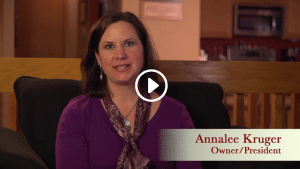Video Presentation Lunch & Learn
Wed. Nov. 20, 2019 – 12noon ET
Preparation for a medical event is not limited to aging – although our Baby Boomer clients came to mind when Gayle met Annalee Kruger of Care Right, Inc. at the annual Financial Planning Association (FPA) retreat this spring. Having just experienced the chaos and confusion of her mother’s medical crisis immediately following her father’s passing, Gayle’s instinct brightened at the opportunity for CK clients and friends to focus attention on aging preparedness, with the guidance of a seasoned professional.
Gayle on her parents’ aging
As I recall the period before and after my father’s death, the picture of an eggbeater comes to mind – constantly in motion, churning to make progress and get things completed. My parents’ had told my siblings and I their wishes for end-of-life. My father wanted to be at home when he took his last breath. My mother, more amiable, wanted to be with my father wherever he was.
Even though my parents executed appropriate estate documents for legal procedures and processing, the details of their desires were missing. Furthermore, the period of life between retirement and declining health is measured in years, not weeks.
My parents did their best to navigate life with independence – as we all want to be able to make our own decisions as adults. A slippery slope can follow when these decisions are passed on to an adult child. The truth of my parents was that both of them together made a sufficient whole. Meaning that as long as both of them were together, they could support each other in the ways they knew how.
Being with them during this period was challenging. Their declining situation was not the picture any of us had for them. But, it was their choice to live in their family home which required continual maintenance and few social opportunities. While my father’s mind remained sharp, his body was failing. My mother’s mind had already been in decline, and now her body is following right behind.
My siblings and I are attending to my mother as best as possible, with 24/7 care in her home. Despite visits to many assisted living opportunities, we are not confident it is the best next move for her, even though living in her current home is not ideal. From our limited research, we believe that my mother’s next move would be into a memory-care facility. Though the situations are bearable and would be safe, clean and offer kind company; we are not willing or able to make this decision for her at this time. It has been about five months since my father’s death – in some ways it seems like years and in other ways just a few weeks.
Again, my parents gave positive attention to many of the issues associated with their aging. But, far too many questions were at play and still remain as we make choices for my mother’s life. We would like to have more confidence that how we are making them, and their outcomes, are optimal for her, and for our relationships.
November Lunch & Learn
In mid-November, as families plan to come together for holiday celebrations and the stage is set for important conversations, Colman Knight will host this video seminar to bring awareness to preparedness for aging or unexpected medical events. Commonly-overlooked questions and scenarios associated with aging will be highlighted. Our goal is to invite you to consider what preparations you can make for facilitating optimal care and meaningful dialogue in the event of an unexpected aging or medical crisis.
We often assume we are “prepared enough” for a medical event. Yet we spend more time talking about the weather, sports, and politics than we do an Aging Plan. Where are the gaps in our planning? When we don’t plan ahead and a medical crisis occurs, the result is often chaos, limited options, and strained relationships. If we wait until a medical crisis to put a plan together, the question to ask is: will we benefit from good options and will clarity and confidence be the tenor of the situation?
Below are questions to consider in advance of our seminar. Please ask your specific queries too. If there is a personally relevant scenario for which you seek guidance, please let us know prior to the seminar, to be able to address it.
What is our current plan if/when a medical crisis occurs? Who will be able to drop what they are doing for a period of time while a plan gets sorted out?
- What conversations have I/we had with my/our family?
- Aging in place at home sounds great, but what does that really mean?
- What communication have we had as a family regarding an aging plan?
- Who already steps in to help when needed and how is that working?
- Is my/our family working as a team or are relationships strained?
- Will I/my family have good options if we wait until a medical crisis to put a plan together?
- Does it make sense to start plan development while things are going “well”?
- Do I see changes/declines in my loved ones (changes in weight, mood, behavior, personality, sleep, hygiene, safety, falls, driving issues, frequent hospitalizations, etc.)
- What am I most worried about as I/my parents age?
What Matters Most

Take Some Time for Autumn Reflections
based on an article by Lena Schmidt
Here in New England, autumn is a spectacular transition from summer highlights to winter quiet. If you are particularly affected by the weather and seasonal changes you might find benefit by creating intention within the seasonal transition.
Vitamin D
The impact of Vitamin D on your health is significant. Studies have linked low levels of Vitamin D with depression and seasonal affective disorder, more prevalently suffered in the winter months. Vitamin D is most reliably sourced by regular sun exposure.
Self-reflection is important
Self-reflection can be understood as thought or meditation about your behavior, beliefs, and motivations. When studied in the health care setting, the benefits of personal reflection included strengthened ability in individuals to progress in their careers and improved motivation.
Checking in at season’s change
Reflecting at the transition of the season can influence how you move into autumn changes, the remainder of your year, and through winter into next year.
Identify the important questions:
Consider several areas of your life in which to inquire and investigate. Think about what brought you joy last season, what challenged you, what may help stimulate growth, and what/whom it may be time to release. Here are some questions to ponder during your autumn reflection.
- How are you feeling as we move deeper into autumn?
- What was the best thing that you experienced so far this year?
- What has challenged you?
- Have you come across any new strengths or weaknesses?
- What have you learned about yourself?
- How has this year been different from other years?
- What lessons or takeaways would you like to carry with you from fall into winter?
- Are there any health-, body-, or food-related changes you would like to make for the next season?
- Are there any career, relationships, or home-life changes you would like to make for the next season?
This is your official invitation to take some time to look back on your adventures, feelings, experiences, and challenges this year so far with compassion and interest. Carve out some time to reflect. Allow your reflection time to be a learning experience for yourself, guided by an interest in learning and growth.
Source:
Chopra.com

